Introduction
Cybercrime in India is increasing at a shocking rate. According to the Economic Times, digital frauds tripled in FY2024–25. The Ministry of Home Affairs also noted that cybercrime rose fourfold, with over ₹1.7 billion lost to online scams (Reuters).
Students are increasingly targeted by online fraudsters, but why? Because they’re new to digital payments, online job offers, and virtual friendships. But you can learn to stay safe.
This guide will teach you everything you need to know about digital frauds that target students and how to avoid falling for them.
What Is Digital Fraud?
Digital fraud is when someone tricks you using the internet, through fake messages, phone calls, job offers, or links, to steal money or personal data. It can come through emails, WhatsApp, Instagram, or even a call from an unknown number.
Why Are Students Easy Targets?
Students often become scam targets not because they’re careless, but because scammers exploit a few common traits:
- Lack of Awareness – Many are new to online banking, job sites, or spotting fake links.
- Curiosity & Excitement – Scammers use tempting offers like internships or quick earnings to bait students.
- Trusting Nature – Messages that seem urgent or professional can easily gain their trust.
- Pressure to Succeed – The need to support family or earn fast makes “easy job” scams appealing.
- No Digital Safety Training – Most schools don’t teach cyber safety, so even smart students can get fooled.
That’s why this blog matters. The more you know, the safer you stay.
Let’s now explore the most common scams and how to beat them.
Common Scams That Target Students
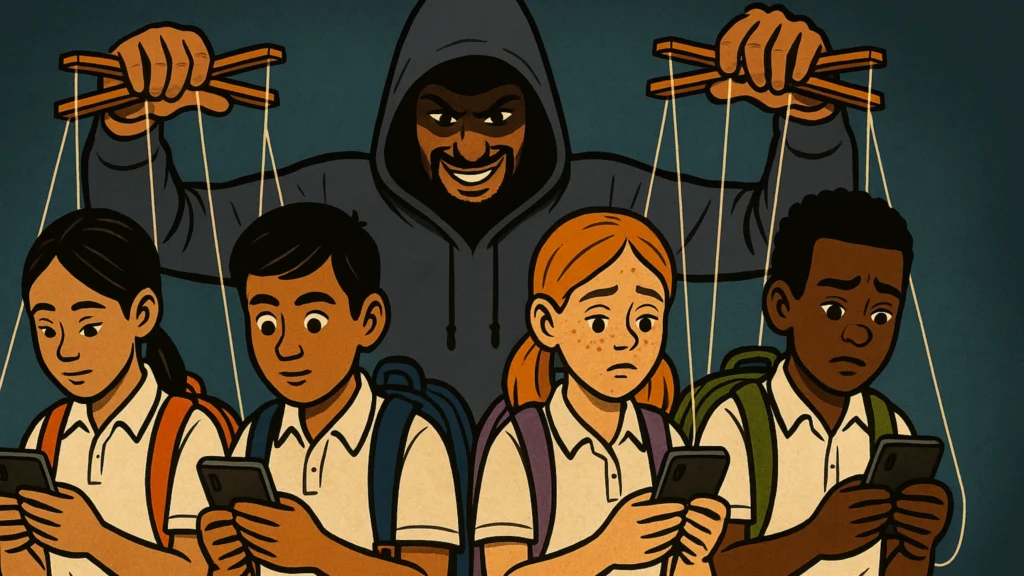
1. Phishing Emails and Messages
Scammers send emails or texts pretending to be from your bank, Paytm, or school. They ask you to click links or enter passwords.
- Avoid it: Always check the sender’s address and website URL.
- If caught: Don’t click anything. Change your password right away. Report it to your bank or school IT.
2. Fake Job or Internship Offers
You might get a promising internship online, but then be asked for money or documents first.
- Avoid it: Legit companies don’t ask for payment from interns. Always verify on LinkedIn or their official site.
- If caught: Stop communication. Ask your parents to help report the scam to employment platforms.
3. Telegram Task Scam
A message invites you to join a Telegram group where you can “earn” money by liking posts, rating on Google Maps, and watching videos.
- Avoid it: Real work doesn’t usually pay for small upfront tasks.
- If caught: Leave the group immediately and block the sender. Tell a trusted adult.
4. Online Friendship or Romance Scams
Someone online may pose as your friend or partner and request photos or personal information. They might then threaten or blackmail you.
- Avoid it: Never share personal photos or info with strangers online.
- If caught: Block them, save messages, and tell a parent or teacher about the scam.
5. Digital Arrest or Police Scams
You receive a video call from someone claiming to be a police officer or a lawyer. They say you’re in trouble and demand payment.
- ✅ Avoid it: Real authorities do not call you for money.
- 📞 If caught: End the call immediately. Report the number to local police.
6. Fake Lottery or Prize Scams
You might see messages saying, “You’ve won ₹5 lakh just pay ₹499 for processing.”
- ✅ Avoid it: Never pay to claim a prize you didn’t enter.
📞 If caught: Ignore the message, block the number, and warn friends not to fall for it.
7. Fake School, Certificates, or Exam Help
Scammers sell fake certificates, exam answers, or online results for money.
- ✅ Avoid it: Only trust official websites like UGC or AICTE.
- 📞 If caught: Report to the real education board and tell your teacher or parent.
8. Emergency Calls or Kidnap Scams
Late-night calls say you’re in danger or kidnapped, then ask parents for money.
- ✅ Avoid it: Always check by calling someone at home or school first.
- 📞 If caught: Don’t send money. Call the caller back yourself, or ring trusted contacts.
9. SIM Swap and OTP Scams
You may get a call saying your SIM will be cancelled unless you share the OTP they just sent.
- ✅ Avoid it: Never share OTPs. Official operators won’t call asking for one.
- 📞 If caught: Freeze your number immediately by contacting your telecom provider.
10. Data Theft via Fake Apps
Scammers create fake apps (like game cheats or study tools) that steal your data.
- ✅ Avoid it: Only download apps from Google Play or the Apple App Store. Check reviews carefully.
- 📞 If caught: Uninstall the app, change your passwords, and monitor your accounts.
Once you know these scams and how to respond, you’ll be ready to stay safe online and help your friends do the same.
Precautions Every Student Should Follow
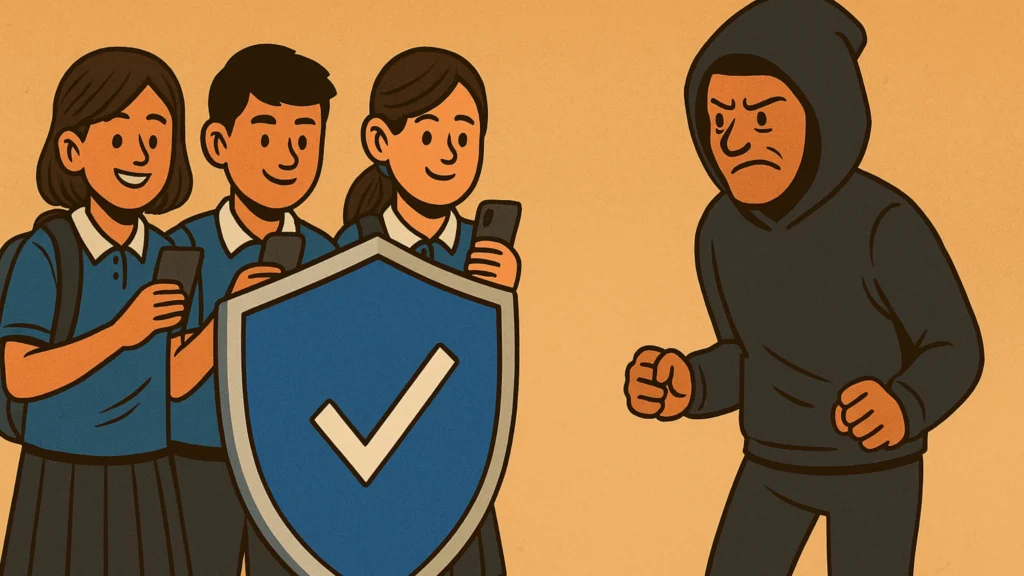
- Never Share OTPs, Passwords, or PINs with Anyone
- Verify Links and Calls Before Trusting Them
- Use Strong, Unique Passwords for Each Account
- Enable Two-Factor Authentication (2FA)
- Don’t Chat with Strangers Online
- Download Apps Only from Trusted App Stores
- Cover Webcam and Mic When Not in Use
- Check Internship and Job Offers Before Applying
What to Do If You’re a Victim
- Don’t panic. Stop communicating with the scammer.
- Save all messages, screenshots, or proof.
- Tell a trusted adult immediately.
- Report at cybercrime.gov.in or call 1930.
- Contact your bank if money is involved.
- Inform your school or organization, and they may help report it safely.
Conclusion
Digital fraud is not a rare danger anymore. It’s a growing threat, and students are a prime target. You must know what to look out for, how to react, and how to stay ahead.
To recap:
- Stay alert when online.
- Question offers that sound “too good.”
- Never give in to emotional pressure from strangers.
- Don’t share passwords, photos, or money with unknown people.
- Always report suspicious activity early.
Being smart online is now as important as being smart in class.
Have you or someone you know ever fallen for a digital scam?
Know a scam we didn’t mention? Share your experience in the comments, your story might protect someone else.

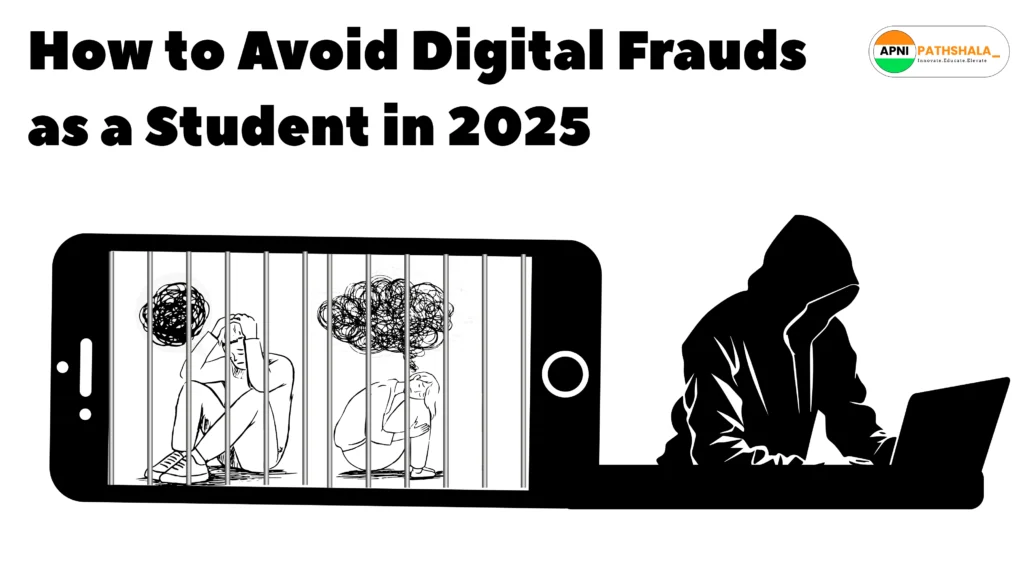
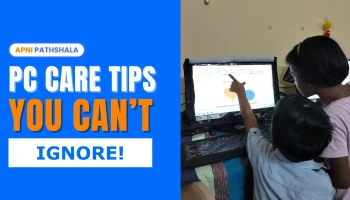


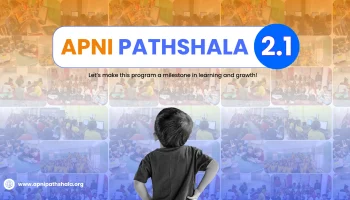

















































































4 Responses
As a student myself, I thank ApniPathshala for shedding some light on the Digital Fraud Issue for the younger generation, which is usually ignored by society. Because if today’s children are aware, the whole generation can be safe.
Very Helpful for kids nowadays!
Very helpful and informative & love the details you mentioned in blog.
This is very helpful for those who are new to technology and computers, not just students, but people who are prone to digital/cyber fraud.
Very well written and portrayed by Apni Pathshala.